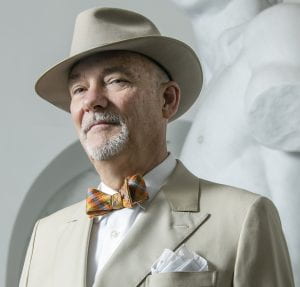An other-worldly vaccine argument at the Supreme Court
 Predictions about how the Supreme Court will rule in the mask/vaccine cases appeared quickly and in bulk. No need to add to them, especially since they are mostly pretty consistent.
Predictions about how the Supreme Court will rule in the mask/vaccine cases appeared quickly and in bulk. No need to add to them, especially since they are mostly pretty consistent.
In time, observers who care about how important process is to the integrity of the system will raise the Court’s disturbing lack of attention to it. The businesses and states that want to stop the OSHA mask/vaccine rule from going into effect are asking the Court to issue a writ (though they call it a “stay,” which it clearly is not). To get the writ, they have to show, as the Solicitor General put it, “an indisputably clear right to relief.” But virtually everyone involved acted as though the issue were the ultimate merits, who should win in the end. That’s not the way the Court is supposed to operate.
That was hardly the most discordant thing about the argument though. After the Supreme Court decided Citizens United, Sen. John McCain, one of the authors of the law the Court struck down, described the decision as the result of “naiveté and sheer ignorance.” Naivete seemed front and center again at the argument in National Federation of Independent Businesses v. Dept. of Labor.
Take a couple of points Justice Alito raised repeatedly. OSHA says the “grave danger” that allows it to issue an emergency regulation is the danger to unvaccinated workers (while there is doubtless a danger to vaccinated workers as well, OSHA didn’t think it enough to represent a “grave” danger; the policy was developed during Delta but before Omicron). Justice Alito objected to the partenalism, noting that unvaccinated workers “have balanced the risk differently, maybe foolishly.” Whether workers who decide to do high risk things want to be protected has nothing to do with whether OSHA has the power to protect them, which is the issue in the case. It’s a fair point though that at least in theory, one of the aims of limited government is individual liberty. But if we’re going to step out of the precise legal issue, isn’t it also a fair point that these workers have not decided just to take the risk for themselves, but to take it for everyone they come into contact with, families, friends, passers-by. That’s not a workplace OSHA issue; but neither is a worker’s freedom to decide risk for themselves.
Justice Alito also insisted that this OSHA rule was the first OSHA rule ever to impose a safety measure that carried some risk, though he was at pains to say he was not against the vaccine and recognized the risks it presents are far, far smaller than those posed by COVID. Only someone who’d never actually dealt with workplace risk could think that. Virtually every safety measure involves some small risks of its own—deciding to use safety googles poses different very small risks than safety glasses. Choosing one over the other exposes workers to small risks they would not face from the other. Safety measures always involve a balancing of risks.
Even more other-worldly were some of the Chief’s remarks. The statute giving OSHA the power to issue emergency orders was passed in 1970. As the chief remarked, Congress hardly had COVID in mind then, and the agency had never required a vaccine (even as one of two alternatives) before. Those two things led the Chief to think that OSHA would need specific Congressional authorization to act here. But the point of granting emergency powers is to make sure there is power to deal with the unforeseen and to do it if need be with unforeseen tools. Does it make sense to say we’ve created a government that lacks the power to deal with an unprecedented threat without a new law? To deal with that threat with a stunningly effective new tool without an Act of Congress?
The Chief also thought the fact that several federal agencies had adopted somewhat similar rules suggested the federal government was trying to exercise a general power to govern, something it doesn’t have (the point being that the federal government only has limited, enumerated powers). Part of the Chief’s point is indisputable; COVID isn’t just a problem on the job, or for hospitals and nursing homes, or for people who make contracts with the federal government. It’s a problem for everyone, everywhere in the United States and it is a problem virtually all the time. That makes it something, according to the Chief, that should “be the primary responsibility of the states,” states with far fewer resources and far less expertise.
Can it really be that our constitution makes it impossible for the federal government to respond to a dire national threat that has killed (as of the day this was written) 836,000 people here, and takes another 1,500 or so every day? If so, maybe the drafters weren’t such visionaries after all. Or maybe it just isn’t such a great idea to give so much policy making power to nine lawyers.
